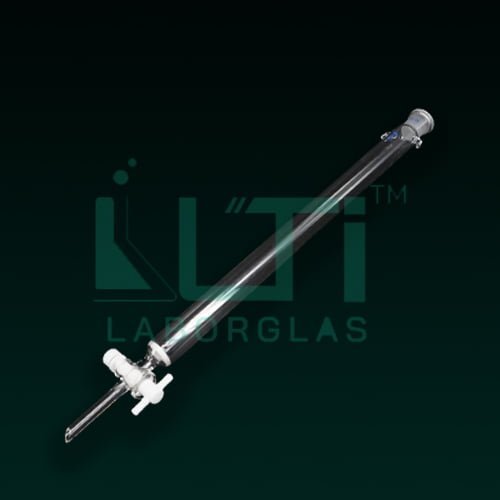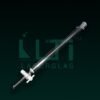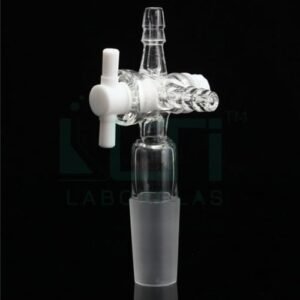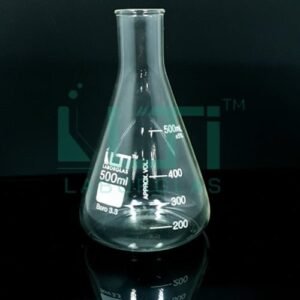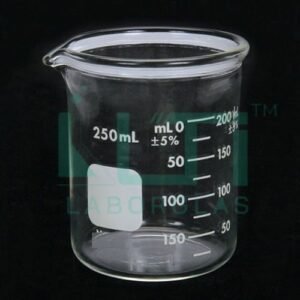- Made of Boro 3.3 glass
- Chromatographic columns
- With sintered frit (porosity: 0)
- With PTFE Stopcock (bore: 0-2.5mm)
| PART No. | Cap.(ml) | Effective length (mm) | Dia.(mm) | Female Joint NS | PACK Qty. |
| 5930-8 | 8 | 100 | 10 | 14/23 | 1 |
| 5930-15 | 15 | 200 | 10 | 14/23 | 1 |
| 5930-35 | 35 | 200 | 15 | 14/23 | 1 |
| 5930-23 | 23 | 300 | 10 | 14/23 | 1 |
| 5930-125 | 125 | 400 | 20 | 29/32 | 1 |
| 5930-430 | 430 | 600 | 30 | 29/32 | 1 |
Here are some common uses for chromatographic columns with a frit, female joint, and PTFE stopcock:
- Column Chromatography:
- These columns are commonly used in column chromatography, a technique for separating and purifying components of a mixture based on their differential adsorption to a stationary phase.
- Adsorption and Separation:
- The fritted disc helps support and retain the stationary phase, facilitating the adsorption of components in the sample. This aids in efficient separation during the chromatographic process.
- Sample Purification:
- The column is utilized for the purification of samples by separating different components based on their interactions with the stationary phase. The PTFE stopcock allows for precise control of the elution process.
- Solid-Phase Extraction (SPE):
- Chromatographic columns with frits and PTFE stopcocks are employed in solid-phase extraction, a sample preparation technique where substances are selectively retained on a solid phase and then eluted for analysis.
- Liquid Chromatography (LC):
- These columns can be used in liquid chromatography techniques, such as high-performance liquid chromatography (HPLC), where precise control over the flow rate and elution process is crucial for separation efficiency.
- Analytical Chemistry:
- The columns find applications in analytical chemistry for the separation and analysis of complex mixtures, allowing researchers to identify and quantify individual components.
- Purification of Chemical Compounds:
- Chromatographic columns with frits are utilized in the purification of chemical compounds, separating impurities and obtaining high-purity substances for further analysis or use in experiments.
- Size Exclusion Chromatography (SEC):
- Columns with frits can be used in size exclusion chromatography, where molecules are separated based on their size as they pass through a porous medium.
- Protein and Biomolecule Separation:
- The columns are employed in protein purification and biomolecule separation, where different components are separated based on their interactions with the stationary phase.
- Educational and Research Applications:
- These columns are used in educational settings for teaching chromatography principles and techniques. In research, they play a crucial role in various studies requiring precise separation and analysis.


